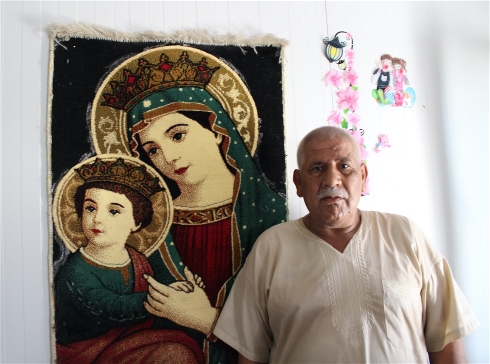
by Florian Neuhof and Louise Redvers, IRIN
ERBIL/DUBAI — A month after fleeing his home in Qaraqosh, the largest Christian town in northern Iraq's Nineveh province, to escape the advance of militants from the so-called Islamic State (IS), Basim Mansour Yohanna received a telephone call. It was a former colleague, a Sunni Arab, who told the Assyrian Christian he was standing inside his family's apartment, preparing to ransack it.
"I won't go back with Sunnis there," the 55-year-old said angrily. "When I see them, it's like they are stabbing me in the stomach. They all betrayed us, we cannot trust any of them."
Huda Salih Marky, a member of the Yazidi religious community from Kocha, also in Nineveh, told IRIN how she was captured by IS and forced to work as a domestic servant in Mosul for a militant for several months, before being sold for ransom. "Yazidis will not be safe here in future, they can't stay in Iraq, the best thing is to emigrate to a country where there are no Muslims," she said.
These views may be extreme, but they are not uncommon.
Recent Updates
5 hours 17 min ago
5 hours 56 min ago
10 hours 10 min ago
10 hours 40 min ago
1 day 3 hours ago
1 day 3 hours ago
2 days 12 hours ago
3 days 3 hours ago
3 days 4 hours ago
3 days 4 hours ago